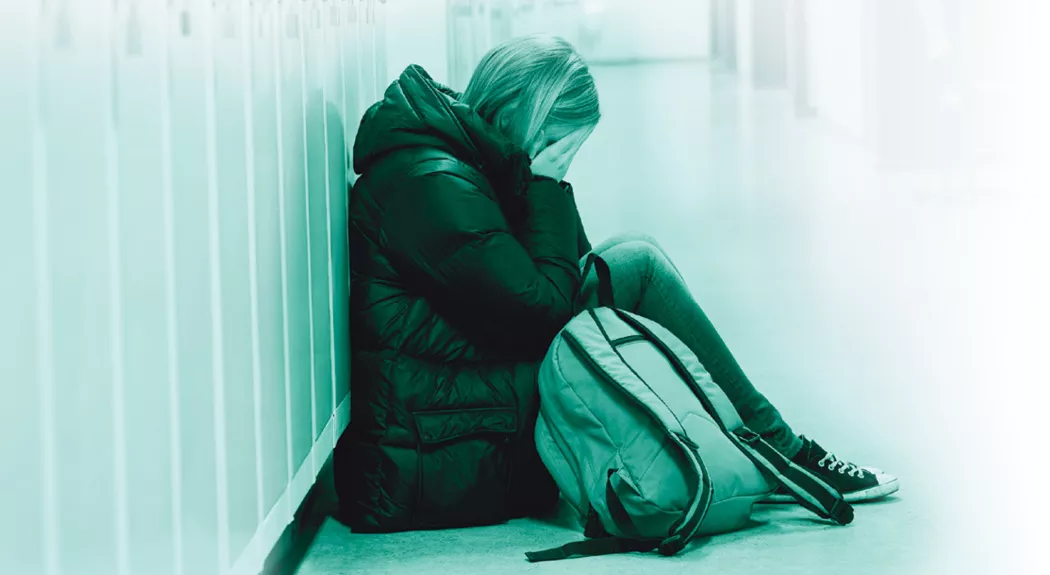As access to electronics continues to grow among teens and preteens, there’s a disturbing trend that some have dubbed the “hate virus”: cyberbullying.
“Cyber bullying is very dangerous because it often occurs in silence. Many times kids are cyber bullied starting at a young age and it can go on for years without parents being aware of the torment that their child is going through,” says Jennifer Williams (Walton), MA, LPC, LCPC, a mental health professional at Anne Arundel Medical Group (AAMG) Mental Health Specialists. “It is extremely important for parents to be aware of their child’s online activities, including who they are speaking to, where they met these people, and do they know them in real life.
“Parents should consistently check in with children regarding online activities to make sure they are safe, and to allow children an opportunity to share with them information about what is happening in their cyber world and if anything or anyone is causing them to feel depressed or anxious,” she says.
“This is an epidemic,” concurs Doyle Batten, supervisor of school security for Anne Arundel County Schools. Doyle says that around-the-clock online access means victims can’t escape their tormentors after school, and that nearly all of the physical confrontations he sees at school can be traced to online interactions. “From a mental health standpoint and from a violence-prevention standpoint this is the most urgent thing I’ve seen.”
Parents and guardians are the most important safeguards against cyberbullying fallout. That means being equipped to step in well before teasing, taunts or intimidation create a life-threatening problem. Here are some ways to keep on top of potential problems:
How to help your child avoid cyberbullying
• Awareness and access: As adolescents have near-universal online access, it may be more realistic to monitor their online use rather than to deny access. Be aware of the social media sites your child uses, and make sure you have passwords to accounts and devices.
• Communicate: Have regular, open-ended conversations about online activities with your child, and discuss responsible online behavior, such as never sharing personal information and that what you post may stick around forever.
• Encourage reporting: Young people should feel safe talking about cyberbullying, whether they are being victimized or someone they know is. Explain to younger children that reporting cyberbullying isn’t tattling.
• Know the signs: A sudden drop in grades, frequent illness, withdrawing from friends or school activities, sleep and appetite changes, and extreme irritability are all warning signs that something is wrong. It could be cyberbullying.
What to do if your child is a victim of cyberbullying
• Listen: Some mean or hurtful attacks may not seem serious to an adult, but they can be very serious to a young person. Victims need to feel heard.
• Question: Without judging, ask open-ended questions to understand the underlying cause.
• Report: Contact a teacher, school counselor and/or administrator. If the bullying involves physical threats or is sexual in nature, it should be reported to the police.
• Understand the law: Cyberbullying doesn’t always rise to the level of a crime. If you think it may, talk to the police or a school safety officer for guidance. In cases of sexually suggestive or explicit materials, kids and parents need to understand that both the bully and the victim may be implicated in a crime if the victim is a minor and willingly took or distributed explicit photos of himself or herself.
• Seek help: Bullying can pose a serious threat to physical and mental health. Your child may need professional help developing coping mechanisms, social skills, assertiveness, or friendship skills to prevent and guard against cyberbullying.
What to do if your child is the cyberbully
• Teach empathy: Some bullies think it’s funny to tease or hurt someone online. In some cases they simply don’t realize the impact of their activity and need to be taught to empathy.
• Seek help: Sometimes children bully because of low self-esteem or because they are being bullied. If your child is bullying as a way to cope with his or her own emotions, seek the help of a mental health professional.
• Teach consequences: Parents need to stress that bullies may lose their phones or online accounts. They may face legal charges. If their bullying behavior is sexual in nature it can lead to the bully being registered as a sex offender.
RESOURCES
AAMG Mental Health Specialists
AAMC’s outpatient
mental health clinic on Riva Road offers mental health services, including a counseling group for kids from 12 to 17 to discuss issues such as bullying self-esteem, body image, family dynamics, school stress and more.
410-573-9000
Anne Arundel County Mental Health Agency Warmline
24/7 information, assistance and referrals
410-768-5522
Anne Arundel County Public Schools Student Safety Hotline
877-676-9854
AACo PD Speak Out App
Allows anyone to discretely contact Anne Arundel County school police officers
http://aacopdspeakout.myapp.name
Maryland Youth Crisis Hotline
800-422-0009
Originally published Nov. 13, 2015. Last updated Sept. 30, 2019.

 Jennifer Williams (Walton), MA, LPC, LCPC
Jennifer Williams (Walton), MA, LPC, LCPC


